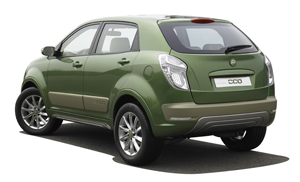
Ssangyong Motor Co. Ltd. has put its rescue operations into effect and is aiming for normalization of operations by 2012, following the Seoul Central District Court’s approval of the battered auto maker’s turnaround plan.
The court overrode two previous rejections of the plan by foreign bondholders and ruled the auto maker should continue operations. Its plan is viable, and Ssangyong is worth more to Korean society as an operating entity than if its assets were liquidated, the court says.
The auto maker’s 3-3-3 rescue plan calls for the company to attain three goals within the next three years: Increase its competitiveness to match competitors, triple revenue and return to profitability.
The court also has stipulated Ssangyong’s management must find a new owner.
Ssangyong says in a statement it will appoint a management firm by January to lead the search for a new owner by September.
Court-appointed receiver CEO Lee Yoo-il tells reporters the company is holding discussions with several overseas companies interested in the acquisition. Analysts calculate the price of acquisition would be 300 billion-400 billion won ($255 million-$340 million).
Ssangyong plans to launch its new C200 cross/utility vehicle in first-half 2010, but many analysts contend the single new entry will not do much to improve the auto maker’s fortunes.

Judge Ko Young-han gave reasons for the court’s decision in a released statement.
“The company has met all requirements set by the court for its self-rescue, and we decided to approve the turnaround plan to protect the interests of the majority,” he says.
The court had been petitioned to approve the plan by Ssangyong’s suppliers and workers union, as well as members of Korea's National Assembly.
A majority of domestic creditors, including bond holders, voted for approval in two meetings held by the court. However, foreign bondholders voted against it both times, denying the company the majority support for the plan that the court had stipulated.
The court overrode its own conditions. Ssangyong has been under court protection since February.



